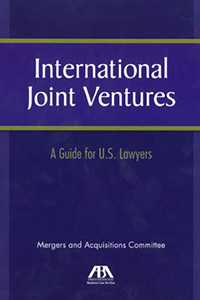Digital Expression and Judicial Sovereignty: Colombian Constitutional Standards in the Esperanza Gómez Case

By Daniel Peña Valenzuela, Partner at Peña Mancero Abogados
1. Introduction: A Constitutional Milestone in the Digital Age
On September 12, 2025, the Colombian Constitutional Court issued a landmark ruling that redefined the boundaries of digital governance and reaffirmed the enforceability of constitutional rights in cyberspace. The case, brought by actress and digital influencer Esperanza Gómez, challenged the arbitrary closure of her Instagram account by Meta Platforms Inc. In reinstating her digital presence, the Court not only protected her individual rights but also established a constitutional framework for platform accountability, judicial oversight, and the defense of freedom of expression in stigmatized industries.
2. Background: Global Norms vs. National Guarantees
Gómez’s tutela action exposed the growing tension between global content moderation policies and national constitutional protections. Her legal team argued that Meta’s decision violated her rights to freedom of expression, equality, due process, and work. The Court agreed, concluding that the account closure was discriminatory and procedurally deficient.
This ruling builds on a series of precedents that have shaped the Court’s doctrine on digital rights. In Judgment T-155 of 2019, the Court addressed the balance between freedom of expression and the right to honor in social media contexts, emphasizing that digital speech enjoys constitutional protection and must be restricted only under strict proportionality. In T-124 of 2021, the Court examined religious expression by public officials on digital platforms, reaffirming the principle of state secularism and the need to ensure neutrality in online discourse. More recently, T-061 of 2024 tackled the issue of transphobic content moderation, holding that platforms must avoid discriminatory enforcement and ensure that vulnerable communities are not disproportionately silenced.
Together, these rulings reflect an evolving doctrine: digital platforms, while privately owned, function as quasi-public forums and must respect constitutional norms.
3. Doctrinal Contributions: Defining the Limits of Platform Power
Justice Natalia Ángel Cabo’s majority opinion introduced several foundational principles that now guide the constitutional regulation of digital spaces:
First, the Court affirmed that platforms may exercise content moderation, but this power must be exercised within constitutional boundaries. The mere invocation of “community standards” does not justify the suppression of constitutionally protected speech, especially when enforcement is arbitrary or discriminatory.
Second, the Court reaffirmed the jurisdiction of Colombian judges over digital rights violations, even when committed by foreign corporations. This principle of judicial sovereignty ensures that constitutional protections are not rendered ineffective by the transnational nature of digital platforms.
Third, the Court declared that discriminatory enforcement of moderation policies—particularly against stigmatized professions such as adult entertainment—is unconstitutional. The decision emphasized that freedom of expression must be protected regardless of the speaker’s identity or occupation.
Finally, the Court extended the principle of due process to digital environments. Users must be afforded clear procedures for notification, appeal, and judicial review when their accounts or content are restricted.
4. Structural Orders: Institutional Accountability and Reform
Beyond individual redress, the Court issued structural orders aimed at reforming Meta’s operations in Colombia. These include:
- Translating all platform policies and guidelines into Spanish to ensure accessibility and transparency.
- Establishing a judicial channel for receiving and complying with court orders.
- Revising moderation policies to eliminate discriminatory language and practices.
- Creating transparent appeal mechanisms subject to judicial oversight.
- Publishing the ruling in Meta’s Transparency Center to ensure public awareness.
- Requesting an advisory opinion from Meta’s Oversight Board to evaluate the broader implications of the case.
These measures reflect a shift toward proactive judicial engagement with digital governance, positioning constitutional courts as key actors in regulating platform behavior and defending fundamental rights.
5. Broader Implications: Constitutional Law in a Transnational Digital Ecosystem
The Gómez ruling raises critical questions for legal systems worldwide. How can national courts prevent global community standards from becoming tools of censorship? What safeguards are needed to protect users in stigmatized industries from arbitrary moderation? How should constitutional law evolve to address the transnational nature of digital platforms?
The Court’s response is clear: by asserting judicial sovereignty, demanding transparency, and defending substantive equality, constitutional courts can shape a more just and accountable digital ecosystem. The decision challenges the notion that digital platforms operate in a legal vacuum and affirms that constitutional protections extend into the digital realm.
6. Conclusion: Toward a Jurisprudence of Digital Rights
The Constitutional Court’s decision in favor of Esperanza Gómez marks a turning point in Latin American digital rights jurisprudence. It affirms that constitutional protections do not end at the edge of the internet and that platform governance must be subject to public law principles. As digital spaces continue to evolve, this ruling provides a foundational model for defending rights, regulating moderation, and ensuring that online expression remains free, fair, and constitutionally protected.

International Joint Ventures (2013)


